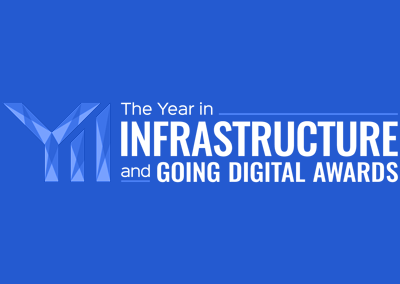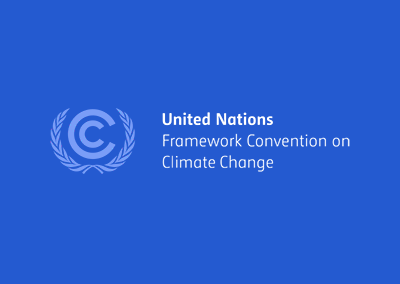Read moreUseful and practical climate adaptation measures for road designers and managers
Read moreMarket for solutions to increased flooding, erosion, coastal hazards, and sea level rise
Innovation Framework for Resilient Sustainable Infrastructure Projects
Published in a new report entitled “Pushing the Boundaries of Innovation in Sustainable and Resilient Infrastructure,” the International Coalition for Sustainable Infrastructure released an innovation framework to promote resilient and sustainable infrastructure. Authored by Jerry Buckwalter of the ASCE, Edgar Westerhof of Arcadis, and Andrew O’Connell of the ASCE Foundation, the new report highlights innovative solutions for climate adaptation, climate mitigation, and development strategies.
The purpose of the effort is to “…explore, research, highlight, and support innovative sustainable and resilient practices and solutions from around the world…” — discovering local innovations, learning from successes and failures, and replicating key elements. A global evaluation team ranked the infrastructure projects, referred to as ICSI Innovation Champions, based on criteria around ASCE’s future trends and forecasting research project and by selected global experts.
Assessment criteria for infrastructure systems, facilities, or assets included: 1. sustainability: the ability to meet and address the needs of the present and future society in parallel; 2. resilience: the capacity for individuals, communities, and systems to prepare for, adapt to, withstand, and recover from changing conditions, stress, and disruptions; and, 3. innovation: the process of utilizing new technologies, techniques, practices, approaches, and materials to address a known problem.
ClimaTwin™ empowers infrastructure stakeholders to mitigate climate risks and assess adaptation actions across the total asset lifecycle.
© 2022 ClimaTwin Corp. ClimaTwin™, ClimaTwin Basic™, ClimaTwin Enterprise™, and the ClimaTwin logo are trademarks of ClimaTwin Corp. All rights reserved.
###

The Year in Infrastructure and the 2021 Going Digital Awards in Infrastructure
The Year in Infrastructure and the 2021 Going Digital Awards in Infrastructure virtual event and live webcast feature perspectives from Bentley and industry executives. CEO Greg Bentley, Bentley executives, Siemens, and AEC advisors share important insights and celebrate digital advancements in infrastructure and sustainability.
The first session on Wednesday, December 1st Building Better Infrastructure, Advancing our Organizations and Infrastructure Assets focus on “…how going digital advances the resilience and adaptation of our organizations and infrastructure assets, including by honoring extraordinary examples.”
The second session on Thursday, December 2nd Building Infrastructure Better, Advancing our Projects Through Digital Technologies explore digital advances during the 2021 Going Digital Awards in Infrastructure, by recognizing outstanding projects judged by a panel of independent jurors across the AEC industry.
For more information, please visit https://yii.bentley.com/en.
ClimaTwin™ empowers infrastructure stakeholders to mitigate climate risks and assess adaptation actions across the total asset lifecycle.
© 2021 ClimaTwin Corp. ClimaTwin™, ClimaTwin Basic™, ClimaTwin Enterprise™, and the ClimaTwin logo are trademarks of ClimaTwin Corp. All rights reserved.
###

COP26 Reaches Consensus on Key Actions to Address Climate Change
UN Climate Press Release, November 13, 2021
- Adaptation, mitigation, and finance are all strengthened in a complex and delicate balance supported by all Parties.
- After six years of strenuous negotiations, pending items that prevented the full implementation of the Paris Agreement on carbon markets and transparency have finally been approved.
Deliberations under the current session of the COP, CMP, and CMA came to an end this Saturday in Glasgow, one day after their scheduled conclusion. The wide-ranging set of decisions, resolutions, and statements that constitute the outcome of COP26 is the fruit of intense negotiations over the past two weeks, strenuous formal and informal work over many months and constant engagement both in-person and virtually for nearly two years. The package adopted today is a global compromise that reflects a delicate balance between the interests and aspirations of nearly the 200 Parties to the core instruments on the international regime that governs global efforts against climate change.
Under the UK presidency and with the support of the UNFCCC Secretariat, delegates forged agreements that strengthen ambition in the three pillars of collective climate action.
Adaptation was the object of particular emphasis during the deliberations. Parties established a work program to define the global goal on adaptation, which will identify collective needs and solutions to the climate crisis already affecting many countries. The Santiago Network was further strengthened by elaborating its functions in support of countries to address and manage loss and damage. And the CMA approved the two registries for NDCs and Adaptation Communications, which serve as channels for information flowing towards the Global Stocktake that is to take place every five years starting in 2023.
Further information can be found on the UNFCCC website.
About the UNFCCC
With 197 Parties, the United Nations Framework Convention on Climate Change (UNFCCC) has near-universal membership and is the parent treaty of the 2015 Paris Climate Change Agreement. The main aim of the Paris Agreement is to keep a global average temperature rise this century well below 2 Celsius and to drive efforts to limit the temperature increase even further to 1.5 degrees Celsius above pre-industrial levels. The UNFCCC is also the parent treaty of the 1997 Kyoto Protocol. The ultimate objective of all agreements under the UNFCCC is to stabilize greenhouse gas concentrations in the atmosphere at a level that will prevent dangerous human interference with the climate system, in a time frame that allows ecosystems to adapt naturally and enables sustainable development.
For media inquiries, please contact:
Alexander Saier
Chief, Communications and Knowledge
E-mail: asaier(at)unfccc.int
UNFCCC Press Office: press(at)unfccc.int
(Source: https://unfccc.int/news/cop26-reaches-consensus-on-key-actions-to-address-climate-change)
List of terms
- climate change
- climate system
